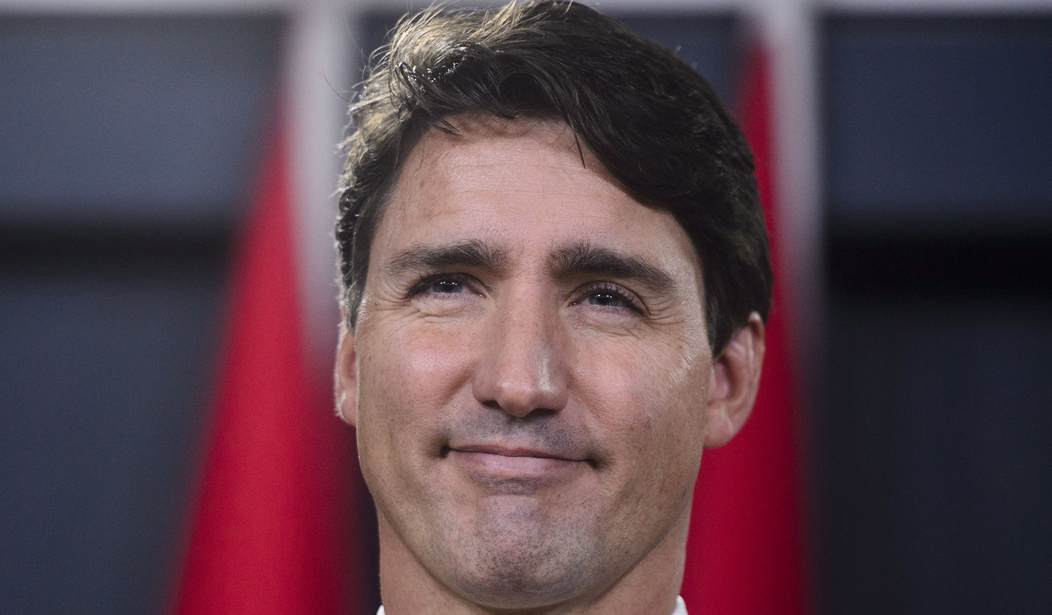In a previous article for PJ Media, I examined Justin Trudeau’s motives for calling a snap election only halfway through a four-year term. He felt the time was right to transform a minority government into a majority government giving him extended powers to solidify his favored ideological policies, such as multiculturalism and the obliteration of Canada’s energy breadbasket in favor of wind and solar, to mention only a few. The strategy apparently failed in that the upshot was merely a return to the status quo ante.
I was also at pains to point out in considerable detail that Trudeau was not prime ministerial material and never was, but a supercilious and self-enamored fraud with dictatorial leanings and a Marxist background, whose administration had been plagued by more than its share of scandals and evident corruption. Nevertheless, he was re-elected, an event that could be viewed not only as a political farce but equally as a withering indictment of an irresponsible and profoundly myopic electorate.
The irony, however, is that no other party leader, with the exception of Maxime Bernier of the People’s Party of Canada, would have provided much of an improvement. Jagmeet Singh of the NDP might be labeled as a Trudeau-lite candidate, a high-tax proponent of an umbrella welfare state who ticked all the socialist boxes. Annamie Paul of the Greens, who showed some flashes of common decency, was saddled by an absurd and Luddite program disguised as environmental piety and a costly new energy technology. Yves-François Blanchet of the Bloc Québécois was not interested in federal power; his only concern was to advance the interests of his own province.
Conservative leader Erin O’Toole, Trudeau’s main challenger, made the common mistake of demoting his best people and heeding his advisors, adopting the strategy of infiltrating his opponent’s political landscape rather than carving out his own electoral territory. As my colleague Grant Brown put it, the Conservative philosophy is to “‘hunt where the ducks are,’ which is to say, tack ever further to the left.” The result is no duck for dinner. In shunting a traditionally right-of-center party into the left’s impregnable bailiwick in an effort to pilfer votes, O’Toole ensured his party’s defeat. He never understood the first rule of political sexuality, that that you must first love your own before attempting to seduce your adversaries.
Trudeau may be a national joke, even if no one is laughing. But there is no doubt that he is a shrewd manipulator. He has been faulted for calling an election that nobody wanted, emerging with the same scenario he wished to change. Yet change it he did, suggesting that his electoral gambit was by no means a total failure. Rather, it was an approximate success. Instead of looking at two more years of incumbent power, he now has a renewed mandate for a four-year term in which to impose the Liberal agenda of galloping debt, Internet censorship, climate change legislation, China-friendly policies, and Covid authoritarianism. Four years instead of two is an administrative triumph. And with the collusion of the NDP and the Bloc, he enjoys a majority government in everything but name.
Related: Trudeau Failed Canada in COVID Vaccine Debacle
Trudeau knew he had a win-win situation. With his principal rival O’Toole out of the picture owing to his own foolishness and lack of credible presence, Trudeau was guaranteed either a minority or majority government—which amounts in his case to six of one and half a baker’s dozen of the other—and, no less important, a prolonged period in which to carry out his social, political, and economic intentions. “Four more years” is not only a Trump rallying cry. What it gives Trudeau is actually six years to exercise power, and, indeed, reckoning from his first term beginning in 2015, 10 years to mold the country in his image. An electoral monarch has to be satisfied with the calculus.
Perhaps Trudeau is not as dumb as some people think he is.










Join the conversation as a VIP Member